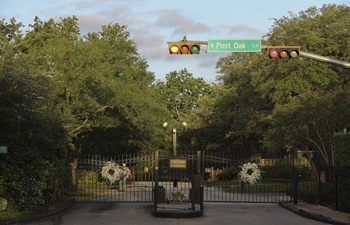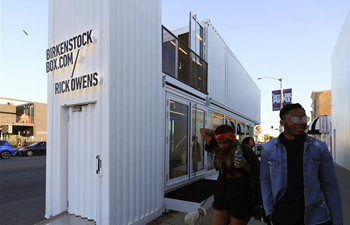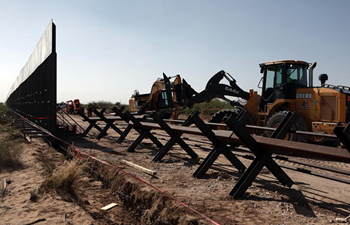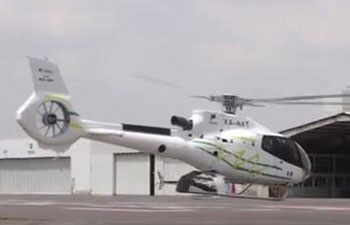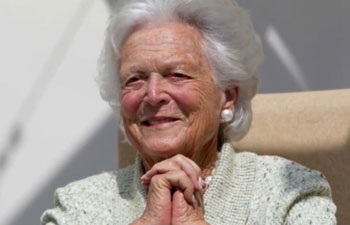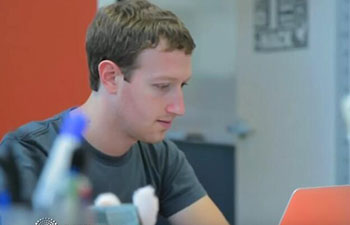HAVANA, April 19 (Xinhua) -- Only a few hours before turning 58, Miguel Diaz-Canel became Cuba's new president on Thursday. He was elected by a majority of the 604 lawmakers that make up the National Assembly of People's Power, the country's parliament.
He is expected to continue implementing the political and economic reforms initiated by his predecessor, Raul Castro, in 2011, some of which are urgent for the country's development.
The election of Diaz-Canel indicates a historic transfer of power to a younger generation of Cuban leadership from the Castro brothers. Fidel Castro led a socialist revolution to victory in 1959, after which he was leader of the island country for nearly half a century.
The late revolutionary handed over power to his younger brother Raul in 2006 as his deteriorating health rendered him incapable of fulfilling his leadership duties.
Emerging from the grassroots and climbing the ranks of the country's political hierarchy, Diaz-Canel has, as the younger Castro once said, demonstrated "capacity" and a "solid ideological firmness."
The new president graduated in 1982 from the University of Las Villas, where he majored in electrical engineering. He was head of the Young Communist League of Cuba (UJC) in his native province of Villa Clara, located some 290 km east of the capital city Havana.
He also served as first secretary of two of the Communist Party of Cuba's (PCC) provincial committees, first in Villa Clara and then in Holguin, around 735 km northeast of Havana.
In 2003 he was elected a member of both the PCC Central Committee and the party's Political Bureau.
When Cubans endured hardships during what was known in the country as the "special period" after the fall of the Soviet Union, Diaz-Canel became popular among the public in the localities that he served and a role model for other officials to follow.
During that time, he was usually seen riding a bike or walking to meetings, always ready to listen to citizens' problems and find solutions.
Residents of Villa Clara and Holguin still remember him as a modest man, competent and close to the people, with a high sense of teamwork and constantly demanding subordinates to preach by example.
He was appointed by Raul Castro in 2009 as minister of higher education, and three years later vice president of the Council of Ministers in charge of education, science, culture and sports.
In February 2013, he was elected first vice president of the Council of State by the National Assembly, which made him the first Cuban official born after the 1959 revolution to hold that position.
Having maintained a relatively low profile as vice president, he has as recently as last year taken center stage in the government, appearing on multiple public occasions in which he defended the continuity of the Cuban socialist model while calling for more dialogue with the new generations.
Diaz-Canel is critical of issues such as corruption, bureaucracy, foreign media manipulation, and giving more power to local officials to let them interact more directly with the public and carry out reform agendas on their own.
He was seen engaging closer with locals as his media exposure increased considerably in the last three months. This image of being friendly to ordinary people has been likened in Cuba to that of the Castro brothers during difficult times.
Diaz-Canel said at a parliamentary election in March that "the people's freedom, independence and sovereignty will endure, and we will never give up on those things."







